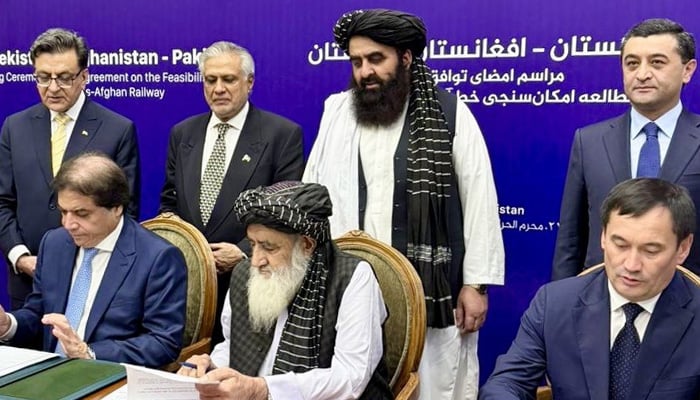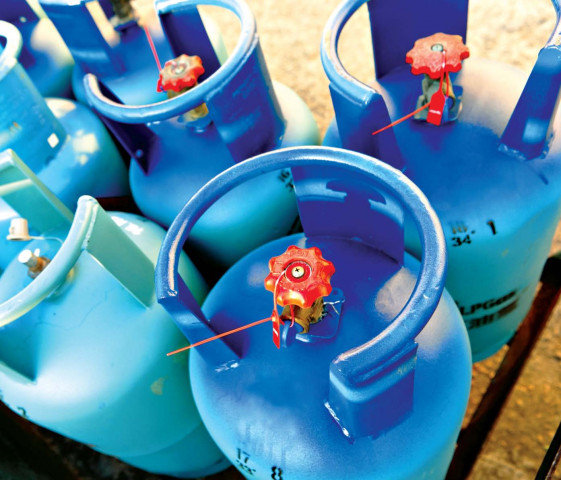Deputy Prime Minister and Foreign Minister Ishaq Dar announced on Thursday that Pakistan has officially signed a trilateral railway agreement with Uzbekistan and Afghanistan, marking a significant step towards bolstering regional connectivity and fostering economic integration.
The initiative, known as the Uzbekistan-Afghanistan-Pakistan (UAP) Railway Project, aims to establish a crucial link connecting Uzbekistan with Pakistan via Afghanistan. This strategic corridor is designed to provide Central Asian states with vital access to Pakistani seaports, unlocking new avenues for trade and transit.
In a post on X, DPM Dar congratulated the people and the governments of the three nations on the signing of the Framework Agreement. This agreement specifically paves the way for a Joint Feasibility Study for the Naibabad–Kharlachi rail link under the UAP Railway Corridor.
Deputy Prime Minister and Foreign Minister Ishaq Dar announced on Thursday that Pakistan has officially signed a trilateral railway agreement with Uzbekistan and Afghanistan, marking a significant step towards bolstering regional connectivity and fostering economic integration.
The initiative, known as the Uzbekistan-Afghanistan-Pakistan (UAP) Railway Project, aims to establish a crucial link connecting Uzbekistan with Pakistan via Afghanistan. This strategic corridor is designed to provide Central Asian states with vital access to Pakistani seaports, unlocking new avenues for trade and transit.
In a post on X, DPM Dar congratulated the people and the governments of the three nations on the signing of the Framework Agreement. This agreement specifically paves the way for a Joint Feasibility Study for the Naibabad–Kharlachi rail link under the UAP Railway Corridor.
Pakistani seaports via Afghanistan
Deputy Prime Minister and Foreign Minister Ishaq Dar announced on Thursday that Pakistan has officially signed a trilateral railway agreement with Uzbekistan and Afghanistan, marking a significant step towards bolstering regional connectivity and fostering economic integration.
The initiative, known as the Uzbekistan-Afghanistan-Pakistan (UAP) Railway Project, aims to establish a crucial link connecting Uzbekistan with Pakistan via Afghanistan. This strategic corridor is designed to provide Central Asian states with vital access to Pakistani seaports, unlocking new avenues for trade and transit.
In a post on X, DPM Dar congratulated the people and the governments of the three nations on the signing of the Framework Agreement. This agreement specifically paves the way for a Joint Feasibility Study for the Naibabad–Kharlachi rail link under the UAP Railway Corridor.
“I also thank the Foreign Ministers of Uzbekistan @FM_Saidov & Afghanistan for their support & commitment for timely signing of the agreement. We remained closely engaged throughout the negotiation process to finalise the details,” he said.
Dar said that the UAP Railway Corridor, a major milestone in advancing regional connectivity and economic integration, will connect Central Asian countries to Pakistani seaports through Afghanistan.
He also mentioned that the signing of today’s agreement is a result of the leadership and commitment of the last PDM Government (2022–23), when he was tasked as Finance Minister to lead “this effort with brotherly countries, and we collectively laid the foundation for this transformational project”.
DPM Dar — who witnessed the signing of the agreement — was accompanied by Minister for Railways Hanif Abbasi, special representative for Afghanistan, and secretary for railways, the Foreign Office said in a statement.
In an earlier statement, the Foreign Office said that the foreign minister’s visit underscores the importance Islamabad attaches to the successful realisation of the UAP Railway Project.
The foreign ministry said the signing of the Framework Agreement on Joint Feasibility Study between the three participating countries in Kabul will be an important step towards its implementation.
Meeting with Afghan FM
The Foreign Office also said that FM Dar met Afghan Acting Foreign Minister Amir Khan Muttaqi in Kabul, along with senior-level delegations from both sides.
During their meeting, the two sides called for strengthened efforts to maintain the momentum in bilateral relations and to expand cooperation in trade, transit and security, domains to the mutual benefit of both peoples.
“They agreed to remain engaged to achieve the full potential of regional economic development, including through reali[s]ation of trans-regional connectivity,” the FO said.
Pakistan, back in May, announced upgrading its Chargé d’Affaires in Afghanistan to the level of an ambassador amid improving ties with the neighbouring country.
Earlier this month, Islamabad and Kabul, during the inaugural round of the additional secretary-level mechanism between the foreign ministries of the two countries, agreed on two-sided efforts to further strengthen the legal movement of individuals across borders.
The two countries discussed key areas of bilateral interest, including trade and transit cooperation, security, and connectivity and recognised terrorism as a serious threat to regional peace and security.






